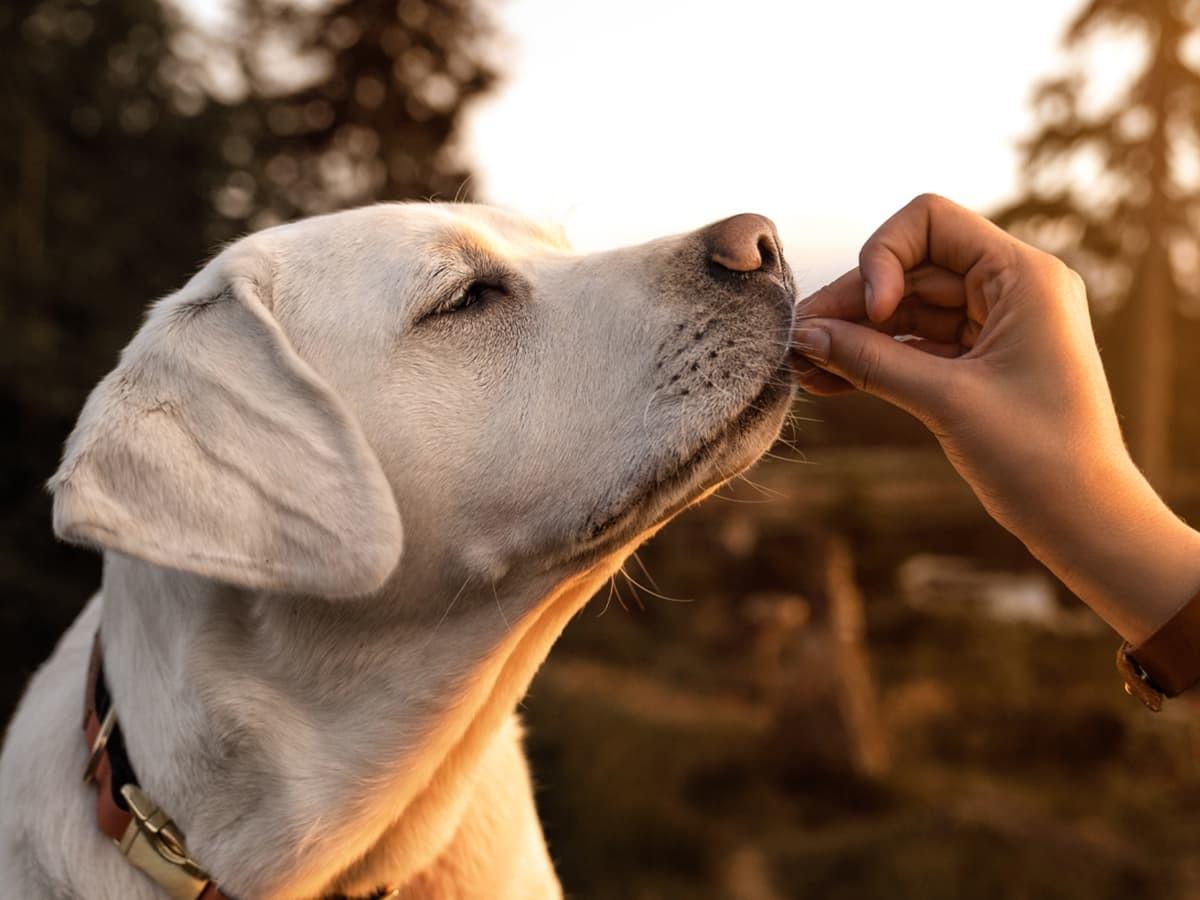Curious about adding some variety to your dog's diet? Wondering if those little green orbs you love, Brussels sprouts, are safe and healthy for your furry friend? The answer is yes, dogs can eat Brussels sprouts! These miniature cabbages offer a powerhouse of nutrients that can benefit your dog's health, but there are some important factors to consider before you start tossing them into your pup's bowl.
Nutritional Benefits of Brussels Sprouts for Dogs
Brussels sprouts aren't just a tasty side dish for humans; they're also packed with nutrients that can be beneficial for your dog's overall well-being:1
Antioxidants: Brussels sprouts are rich in antioxidants like isothiocyanates and vitamins A, C, and K, which help protect cells from damage caused by free radicals. This can lower the risk of chronic diseases and strengthen your dog's immune system.
Fiber: These little green veggies are an excellent source of dietary fiber, promoting healthy digestion and regular bowel movements. Fiber also helps dogs feel full, which can be beneficial for weight management.
Vitamins and Minerals: Brussels sprouts provide essential vitamins like B vitamins for metabolism and energy production, vitamin C for immune support, and vitamin K for blood clotting. They also contain important minerals like potassium for muscle function and manganese for bone health.
Potential Risks of Feeding Brussels Sprouts to Dogs
While Brussels sprouts offer numerous health benefits, there are a few potential risks to be aware of:3
Digestive Upset: Brussels sprouts contain compounds that can cause gas and bloating in some dogs. If your dog is not used to eating Brussels sprouts, introduce them gradually and in small amounts to avoid digestive discomfort.
Choking Hazard: The tough stalks of Brussels sprouts can pose a choking hazard, especially for smaller dogs. Always cut or shred them into bite-sized pieces before feeding them to your dog.
Thyroid Issues: In large quantities, Brussels sprouts can interfere with thyroid function. This is rare and typically only a concern with excessive consumption.

How to Safely Prepare and Serve Brussels Sprouts to Your Dog
To ensure your dog enjoys the benefits of Brussels sprouts without any tummy troubles, follow these preparation tips:
Consult Your Veterinarian: Before adding any new food to your dog's diet, always check with your vet to ensure it's suitable for their individual needs and health conditions.
Choose Fresh Brussels Sprouts: Select fresh, firm sprouts with bright green leaves. Avoid any that are wilted, yellowed, or have soft spots.
Thoroughly Wash: Rinse the Brussels sprouts under cold water to remove any dirt or debris.
Trim and Chop: Remove the tough stems and chop or shred the sprouts into bite-sized pieces.
Cook Thoroughly: Cooking Brussels sprouts makes them easier to digest and helps reduce the potential for gas. You can steam, roast, or boil them. Avoid adding any salt, butter, or seasonings, as these can be harmful to dogs.
Moderate Portions: Start with a small amount and gradually increase the serving size if your dog tolerates them well. Treats, including vegetables, should not make up more than 10% of your dog's daily caloric intake.2
Expert Insights From Spot
While sharing our favorite foods with our pets can be tempting, it's important to remember that not all human foods are safe for dogs. Spot's internal data shows that pet insurance claims for dietary indiscretions average $642*, highlighting the importance of caution and research before sharing snacks with your pet.
Brussels Sprouts for Dogs: FAQs
Can dogs eat raw Brussels sprouts? While technically not toxic, raw Brussels sprouts can be difficult for dogs to digest, potentially causing gas and bloating. It's best to cook them for easier digestion.
How many Brussels sprouts can a dog eat? The appropriate amount depends on your dog's size, age, and overall diet. Start with a small amount (1-2 sprouts for small dogs, 2-3 for larger dogs) and observe how they react. If there are no digestive issues, you can gradually increase the amount.
What if my dog gets diarrhea from Brussels sprouts? If your dog experiences diarrhea after eating Brussels sprouts, it's likely due to the high fiber content. Reduce the amount or stop feeding them altogether. If the diarrhea persists, consult your veterinarian.
Key Takeaways
In moderation and with the right preparation, Brussels sprouts can be a healthy and tasty addition to your dog's diet. Always consult your veterinarian for personalized recommendations and to ensure Brussels sprouts are a safe and suitable treat for your dog. Remember, a balanced and varied diet is key to keeping your pet happy and healthy.

I’m Charlie: canine enthusiast with a knack for figuring out why my dog, Dallas, is more infatuated with tennis balls than me. My lifelong passion for dogs has created a dedication to help other pet parents better understands their furry family members!
*Jan 2019 to Aug 2024 Spot Pet Insurance Services, LLC claims data.
“Dog Vitamins: 7 Vitamins Your Pet Needs for a Healthy Lifestyle.” American Kennel Club, American Kennel Club, 14 Mar. 2024, www.akc.org/expert-advice/nutrition/vitamins-dogs-need-healthy-lifestyle/.
Burke, Anna. “How Many Treats to Give a Dog a Day.” American Kennel Club, American Kennel Club, 7 Feb. 2023, www.akc.org/expert-advice/nutrition/how-many-treats-can-dog-have.
Reisen, Jan. “Can Dogs Eat Brussels Sprouts?” American Kennel Club, American Kennel Club, 13 May 2025, www.akc.org/expert-advice/nutrition/can-dogs-eat-brussels-sprouts.
The information presented in this article is for educational and informational purposes only and does not constitute or substitute for the advice of your veterinarian.











